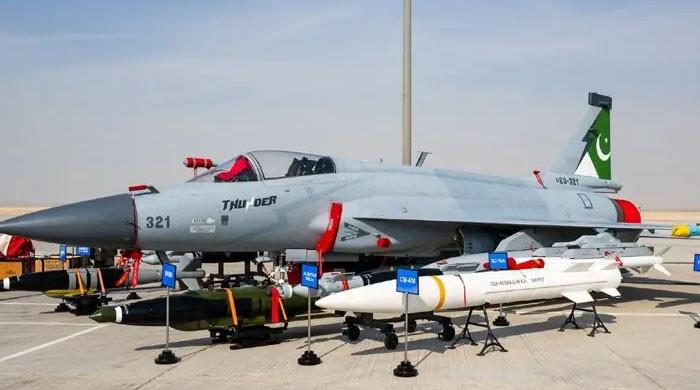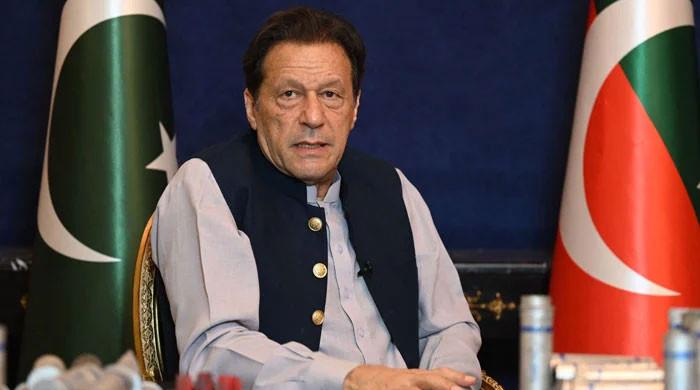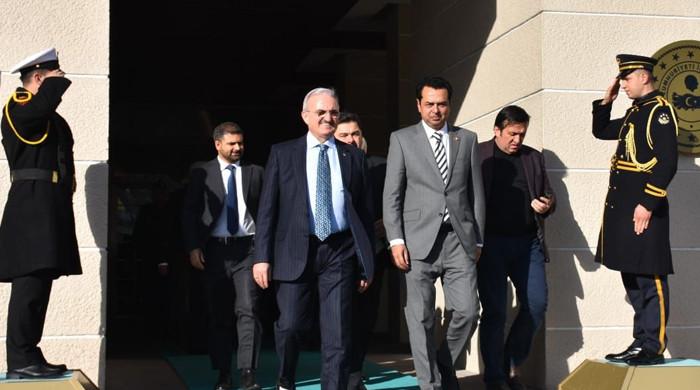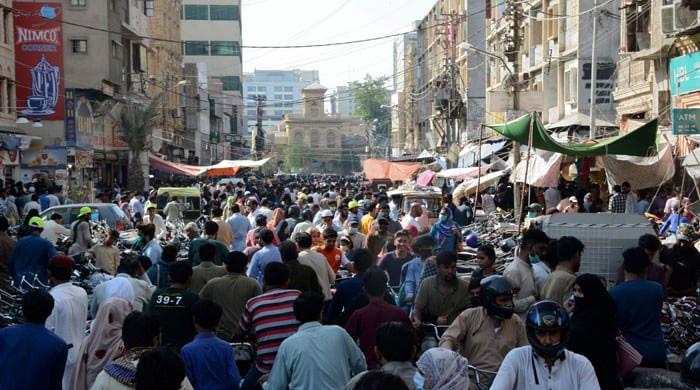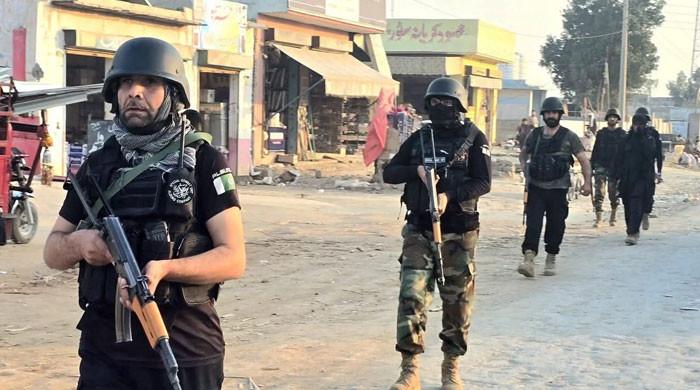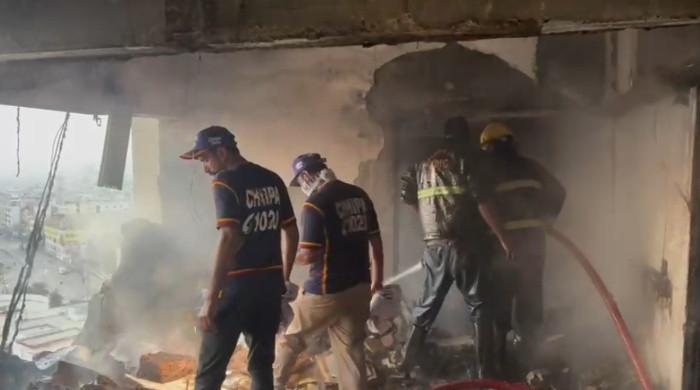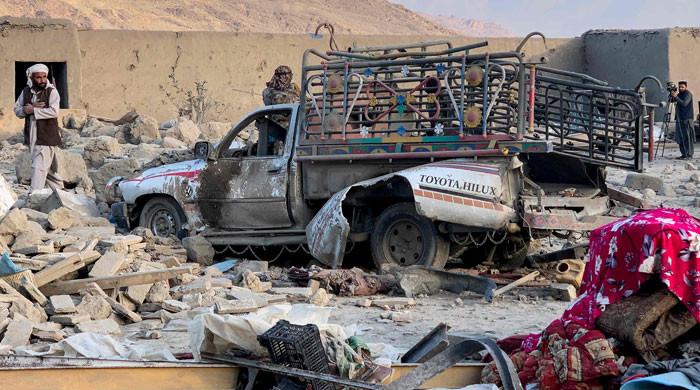'Wait and see essentially means a collapse': Moeed Yusuf urges US to engage with Afghanistan
US should take note and listen to Islamabad's advice on ramping up engagement with Taliban, Yusuf says
September 15, 2021
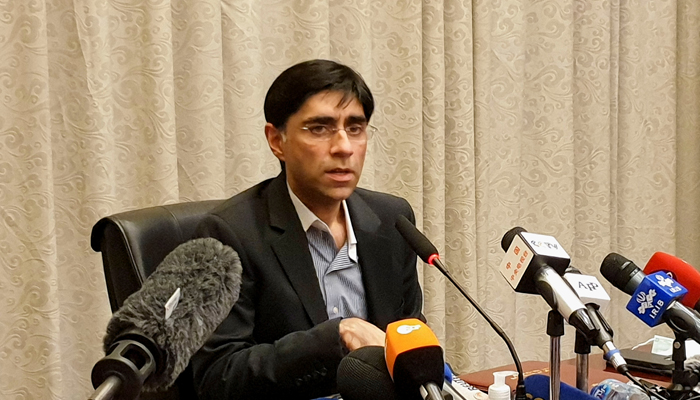
- US should listen to Pakistan's message on Afghanistan, NSA Yusuf.
- NSA says Pakistan continuously advocated for political settlement.
- "Reassessment has to conclude that what Pakistan was saying made sense."
ISLAMABAD: Pakistan urged the world to engage with Taliban-led Afghanistan and said the United States should listen to its message as it reassess its relationship with the South Asian nation, National Security Adviser Moeed Yusuf said on Wednesday.
Yusuf told reporters in the country's capital that Pakistan had continuously advocated for a political settlement to the conflict in Afghanistan and said a military solution was not possible.
He added that Washington, which signalled this week it was reviewing its relationship with Pakistan, should take note and listen to Islamabad's advice on now ramping up engagement with the new Taliban-led government.
"If there has to be a reassessment, the reassessment has to conclude that what Pakistan was saying made sense. So now what Pakistan is saying we should give a fair hearing to," he said.
The United States will be looking at its relationship with Pakistan in the coming weeks, US Secretary of State Antony Blinken said on Monday, to formulate what role Washington would want it play in the future of Afghanistan.
Yusuf warned against isolating Afghanistan as Western powers — while pledging immediate humanitarian aid — are largely holding off on any further financial assistance or formal recognition of the Taliban government while the US has frozen roughly $10 billion of Afghanistan central bank assets. Many countries have said they are waiting to see whether the Taliban uphold human rights and stem militancy.
"It may be popular to talk about 'wait and see', but wait and see essentially means a collapse," Yusuf said.
"Humanitarian assistance is...a stop-gap arrangement to ensure there is no immediately humanitarian crisis, that does not equate to governance, institutional and economic support which is needed by any country to survive in the conditions that you find (in) Afghanistan."
'Engage with Taliban, incentivise them on women's rights'
Prime Minister Imran Khan has also said that in order to achieve peace and stability in Afghanistan, the world should "engage with the Taliban" and they should also be "incentivised" on issues such as inclusive government and women's rights.
The premier was interviewed by CNN on Wednesday at his Bani Gala residence in Islamabad, during which he spoke about the situation in Afghanistan, the role of Pakistan in fostering regional peace, and the country's relationship with the United States.
Per the outlet, PM Khan said that Pakistan had to endure a "terrible" relationship with the United States which turned out to be disastrous for Pakistan.
He added that the country, under his leadership, is now seeking a "more pragmatic approach in dealing with Afghanistan's new leaders."
The premier told the outlet that Afghanistan is on a "historic crossroad" and it could finally achieve peace after 40 years if the incumbent Taliban government could form an inclusive government by getting all the factions on board.
Pakistan rules out refugee camps to cater to Afghan influx
Foreign Minister Shah Mahmood Qureshi has rejected the notion of Pakistan building refugee camps or resettlement processing facilities for the people coming from Afghanistan.
Instead, he said, Pakistan would continue to facilitate the departure of those with valid documents who wished to exit Afghanistan via Pakistan — drawing the line at allowing an influx of refugees.
In an interview with The Independent, Qureshi said there had been “no rush” on Pakistan’s borders, and stressed that there was no need for people to flee Afghanistan as the country was “peaceful and stable”.
“We have our limitations. [Pakistan has] been hosting over three million, almost close to four million refugees for so many decades without any international help or assistance. We do not have the capacity to absorb more, honestly,” he said.




